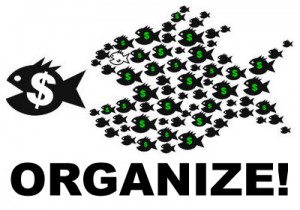The talk of change is all around. We are seeing its potential in the transition from one president to the next. Hopefully, this is just the beginning of change that will rekindle the ideas of our founding fathers and their desire for liberty and justice for all.
Here is one more look at where we have been, but is is followed by a look at where we could be going with this change.
The following quotes from Senator, now President-elect, Barack Obama provide his perspective on what has gone wrong under the rule of Conservatives Without Conscience. He refers often to our empathy deficit brought to us by our authoritarian leaders and followers within The Republican Party.
In June 2006, at the Northwestern University Commencement Address, Obama said:
… for me the first lesson of growing up:
The world doesn’t just revolve around you. There’s a lot of talk in this country about the federal deficit. But I think we should talk more about our empathy deficit – the ability to put ourselves in someone else’s shoes; to see the world through those who are different from us – the child who’s hungry, the laid-off steelworker, the immigrant woman cleaning your dorm room.
A month later Senator Barack Obama Urges Students to Reverse ‘Empathy Deficit’:
Obama also railed against what he called an “empathy deficit,” which he said blinds many to the plight of struggling members of society. He urged students to put themselves in the shoes of the despondent and downtrodden, adding that true personal fulfillment only comes through working towards the public good.
In January 2008, Obama spoke on The Great Need of the Hour:
I’m not talking about a budget deficit. I’m not talking about a trade deficit. I’m not talking about a deficit of good ideas or new plans.
I’m talking about a moral deficit. I’m talking about an empathy deficit. I’m taking about an inability to recognize ourselves in one another; to understand that we are our brother’s keeper; we are our sister’s keeper; that, in the words of Dr. King, we are all tied together in a single garment of destiny.
We have an empathy deficit when we’re still sending our children down corridors of shame – schools in the forgotten corners of America where the color of your skin still affects the content of your education.
Because if Dr. King could love his jailor; if he could call on the faithful who once sat where you do to forgive those who set dogs and fire hoses upon them, then surely we can look past what divides us in our time, and bind up our wounds, and erase the empathy deficit that exists in our hearts.
More recently, President-Elect Obama reframed the empathy deficit in his nomination acceptance speech:
For over two decades, he’s [John McCain] subscribed to that old, discredited Republican philosophy – give more and more to those with the most and hope that prosperity trickles down to everyone else. In Washington, they call this the Ownership Society, but what it really means is – you’re on your own. Out of work? Tough luck. No health care? The market will fix it. Born into poverty? Pull yourself up by your own bootstraps – even if you don’t have boots. You’re on your own.
It’s time to end the
“You’re on your own” Society
Others have also written about the authoritarian conservative rule of our federal executive and legislative branches of government and the history of this empathy deficit. John Dean (referenced frequently in this blog) wrote Conservatives Without Conscience (or Empathy) in which he writes about what has happened to the Republican party and the authoritarians that are responsible.
In another more recent book, The Political Mind by George Lakoff, Professor Lakoff explains the how and why Republican authoritarians gained control. In doing so, Lakoff also provides an understanding of the mind and how it changes, how to avoid falling into empathy deficit traps of the conservative mind set and how to rekindle your empathy and promote a progressive mind set.
Dr. Lakoff, professor of cognitive linguistics at UC Berkeley, hopes that we will learn to recognize the “conservative cognitive policy” that has plagued our country for decades and replace it with a “progressive cognitive policy” based on empathy for our fellow humans. Lakoff defines cognitive policy as “getting an idea into the normal public discourse.”
This conservative ‘you’re on your own’ public discourse, which has been promoted through an “explicit, well organized, and well funded” conservative (non-caring) cognitive policy, has attempted to:
- Replace medicare and social security with private medical and retirement accounts
- Replace public schools with school vouchers
- Replace progressive taxes, which impose higher taxes on those who benefit most from America’s infrastructure, with a Flat tax for the rich
- Use big government to attack social programs from within
- Use profit oriented private contractors to replace the protection and empowerment provided via our government
- Use the bad apple frame to transfer responsibility from those in charge to those placed in the bad barrel
Lakoff also writes of his hopes of replacing the empathy deficit with responsible and strong empathetic actions. Lakoff hopes a progressive cognitive policy will grow to support the “change we need.” This “conscious” change includes realizations that:
- “… empathy is at the heart of American democracy” and “ecological consciousness.” Empathy is caring “about fundamental human rights,” caring “about protecting our people in all ways,” caring “about empowerment of both individuals and businesses” and caring “about checks and balances against authoritarian power.”
- The moral base of progressive thought is the “politics of empathy, with the responsibility and strength necessary to act on that empathy.”
- Conservative politics is based on “authority, discipline and obedience”
- “The question of whether American politics should be based on empathy or authority will not disappear.” Both mindsets will continue to exist but both will be understood.
- “… there is no right-to-left line between progressive and conservative views …” There is a conservative strong-father mode of thought and a progressive nurturant mode of thought which can be mixed in varying proportions depending on one’s life experiences.
- “… nurturant upbringing is far better for children – and society …”
- “Advocates of strict father upbringing … would be recognized as being harmful to children.”
- Progressives would learn to “avoid using frames [and words or phrases] that best fit the other side’s values …”
- Progressive foreign policy will be focused “on people, not just states …”
- “Kinds of common wealth – the air, the airwaves, the rivers, streams, and aquifers, the oceans, the national forests – would be recognized as more valuable preserved than used and as property owned by all and kept in trust, with permits for use sold at auction and caps placed on pollution and reasonable use.”
- “Privateering would be a recognizable conservative strategy. … Deregulation and privatization would be understood not as elimination of government, but as a shift from … public government with a moral mission (protection and empowerment) to private government with only the mission of maximizing profits.”
- “Taxes would be seen as payment for both continuing protection and empowerment [by government].”
- “The immorality of the vast divide between the ultra-wealthy and the middle and lower classes would be manifest.”
- “Health would be seen as a matter of protection [like the military, police and EMTs], not insurance.”
- “Education would be seen as a matter of empowerment [like highways, the internet, banking system and the courts].”
- “Accountability would flow upward – toward those in charge, not downward to those who are powerless or subordinate.”
After detailing the above points in the last chapter of The Political Mind, George Lakoff concludes with:
… A new understanding is emerging about what it means to be human. Our political institutions and practices reflect our collective self-understanding. When that changes dramatically, so should our politics.
But, we’d better hurry up. The ice caps are melting.
If you would like to learn more about changing minds, there are many articles by and videos with George Lakoff available on the web. You can also visit The RockRidge Institute and the new Cognitive Policy Works. A related book you might also find of interest is Cracking the Code by Thom Hartmann.







